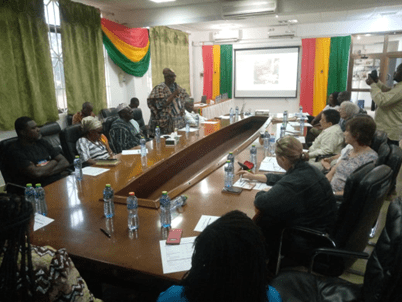Strengthening Accountability in Ghana’s Education System (SAGES) programme, a five-year initiative by the United States Agency for International Development (USAID), has been rolled out to address the falling standards of education in the northern part of the country.
The US$50million programme, which is to be implemented by AfriKids Ghana under the auspices of the Ministry of Education and Ghana Education Service (GES), seeks to strengthen accountability mechanisms in the education sector in line with the country’s Education Strategic Plan (ESP), 2018-2030.
The initiative is estimated to impact about 1,254 schools and 508,269 pupils in 17 classified USAID Zones in the Northern, North East, Upper East and Upper West Regions.
In the Upper East Region, the activity would be implemented in Bawku West, Bawku Municipality, Garu and Tempane Districts.
The programme aims to achieve the following outcomes: improvement in primary education service delivery through institutionalising accountability in the primary education system, strengthening the enabling environment for education accountability, and increasing the academic performances of students.
Deputy Chief of Party – USAID/SAGES Programme, Mohammed Amin Dawuda, mentioned at the intervention launch event at Bolgatanga that even though Ghana has made some gains in the area of increasing access to basic education, quality remains a challenge. Therefore, the programme would help improve quality and learning outcomes.
Among others, it would see to the involvement of communities and the training of teachers to ensure quality service delivery.
The Country Director of AfriKids Ghana, David Pwalua, said improving teaching and learning in schools is a shared responsibility; hence, the implementation would help bring onboard all stakeholders in the community to ensure a holistic learning experience.
In 2022, the Education Ministry conducted a National Standardised Test (NST) to help find challenges confronting the education sector. The essence of the test was to ascertain the strengths and weaknesses of the pupil in literacy and numeracy, which are the foundational skills that are required for learning and effective teachings.
The findings, which are to also help proffer solutions, revealed that 62 percent of basic two learners in the northern sector could not read. It further revealed that 50 percent of basic four learners are below basic level English while 62 percent are below basic level Mathematics.
It also identified the lack of accountability as one of the primary causes of poor learning outcomes in primary schools in Ghana; hence, the desire to strengthen accountability systems with the introduction of the SAGES intervention.










